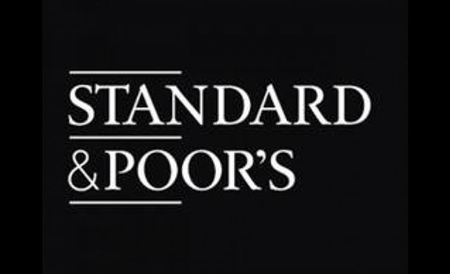BANGKOK, Dec 13 – Standard & Poor’s Rating Services has affirmed Thailand’s stable outlook on long-term foreign and local currency ratings, citing a favourable external position, light government indebtedness and the credibility of the country’s monetary policy as the main rating supports.
Chularat Sutheethorn, director general of the Finance Ministry’s Public Debt Management Office, said S&P’s also affirms the ‘axAA/axA-1’ ASEAN regional scale rating for Thailand as well as its ratings on Thailand’s outstanding debt issuances.

The rating agency projects Thailand’s foreign exchange reserves at US$190 billion (eight months of current account payments) by the end of 2012, and indicates that Thailand has run (mostly small) current account surpluses since 2006.
“We expect this trend to continue at least through 2015. As a result, we estimate net external liabilities at 14 per cent of current account receipts at yearend 2012 and expect external liquid assets of the government and financial sector to be double that of the nation’s external debt,” says S&P’s.
It continues, “Similarly, the general government has run surpluses or small deficits since its recovery from the Asian financial crisis of 1997. After steadily declining to 17 per cent of GDP in fiscal 2008 (ending September 30, 2008), net general government debt rose to 24 per cent of GDP at the end of fiscal 2011. We expect the ratio to increase only modestly through 2015. The general government’s interest burden remained a comfortable 5.5 per cent of revenue.
“Thailand’s inflation, as shown by the Consumer Price Index, has been less than 5.5 per cent per year since 1999. Credit growth has been in line with nominal GDP growth. We rank the country’s banking system ‘5’ on a scale of 10. Thailand’s per capita GDP–about US$5,350 in 2012–is a credit constraint. The country’s infrastructure, health, and education indicators also are more in keeping with those of lower-rated sovereigns.”
“Political uncertainties have been an important credit weakness for Thailand in recent years. Since 2006, frequent and at times extra-constitutional changes in the government have delayed structural reforms, hindered government infrastructure spending, and depressed foreign direct investment. Street protests opposing the leading government party at times have caused significant economic disruptions. However, since the new government took office, political tensions have begun to ebb.”
S&P’s says it could lower the rating if Thailand’s fiscal position and economic indicators worsen significantly due to, for example, the government adopting strongly populist policies.




